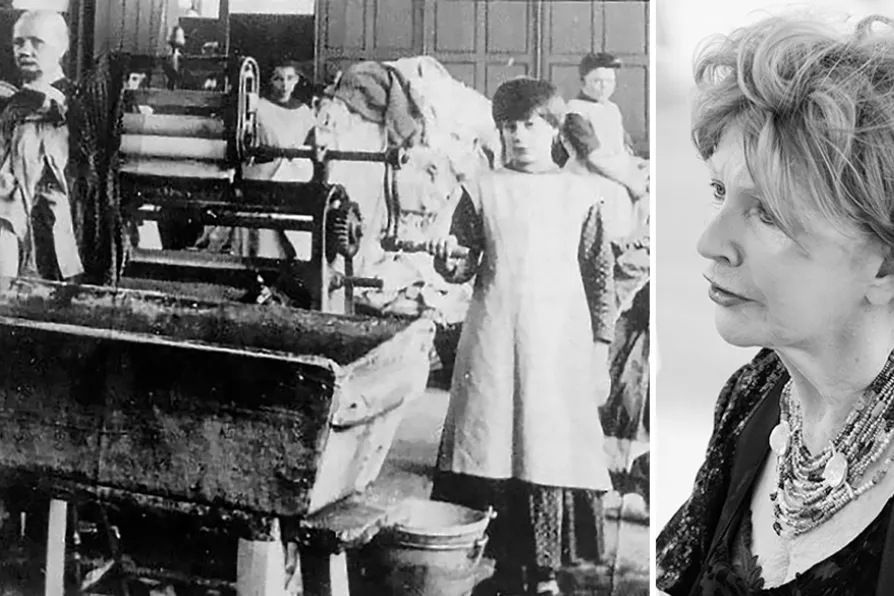ANDY HEDGECOCK and MARIA DUARTE review Good Night, and Good Luck: Live from Broadway, Becoming Victoria Wood, Hamnet, and Song Sung Blue

 AGAINST BRAINWASHING: (L) Magdalen Laundry in Ireland, early 20th century; (R) Edna O’Brien in 2015
[Public Domain; Alessio Jacon/CC]
AGAINST BRAINWASHING: (L) Magdalen Laundry in Ireland, early 20th century; (R) Edna O’Brien in 2015
[Public Domain; Alessio Jacon/CC]
THE magnificent Edna O’Brien died last week. She was one of Ireland’s most talented writers — perhaps the most gifted female writer to be hounded out of Ireland in the 20th century. The role that London played in her career was integral, as sanctuary and the stimulus for her creative development, although this is rarely mentioned.
Edna O’Brien’s 1962 debut novel, The Country Girls, forever associated her with her country, its natural beauty and sexual repression. She related how it was written in a feverish three weeks on her arrival in London, as a farewell to Ireland.
She described her first impressions: “I had never been outside Ireland and it was November when I arrived in England. I found everything so different, so alien. Waterloo Station was full of people who were nameless, faceless. There were wreaths on the Cenotaph for Remembrance Sunday, and I felt bewildered and lost — an outsider.”

FIONA O'CONNOR recommends a biography that is a beautiful achievement and could stand as a manifesto for the power of subtlety in art

FIONA O’CONNOR is fascinated by a novel written from the perspective of a neurodivergent psychology student who falls in love

FIONA O’CONNOR steps warily through a novel that skewers many of the exposed flanks of the over-privileged

A beautifully-crafted documentary from Sinéad O’Shea










